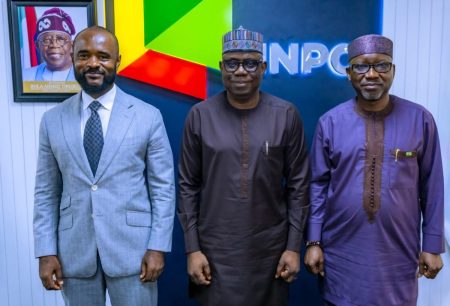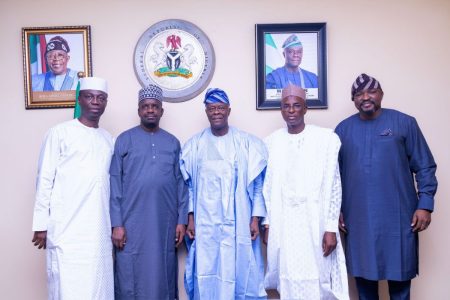
10 September 2017, Sweetcrude, Port Harcourt — On Thursday, the 7th of September, 2017 the Yoruba nation, that is, the Yoruba speaking people of the six South-West states as well as Kogi and Kwara States, met at the Lekan Salami Stadium, Adamasimgba, Ibadan to consider and approve a document prepared by Chief Niyi Akintola, SAN as the Yoruba position for the restructuring of Nigeria, the hottest topic under discourse in Nigeria. Among the major issues canvassed for restructuring in the proposal is the devolution of 25 items from the Exclusive Legislative List in the 1999 Constitution, items such as Customs Duties, Exchange Control, Currency, Coinage, Arms, Ammunition, and Citizenship. The document also proposed a regional structure in the reflection of the existing six unofficial regional groups of Nigeria. The Yoruba assembly comprising all the state governors of the South West, Yoruba members of the National Assembly, members of the South West states’ Houses of Assembly, topmost traditional rulers, youth representatives, opinion leaders, representatives of professional bodies, market leaders and many others met and considered the document prepared by the learned Senior Advocate of Nigeria.
The assembly deliberated exhaustively on all the issues that were recommended in the Chief Niyi Akintola document and issued a communiqué endorsed by Chief Afe Babalola, SAN and Dr. Kunle Olajide, Summit Chairman and Summit Planning Commit Chairman. Item 14 of the Communique reflected the general position of the Yoruba on true federalism in the form that it was under the 1960 and 1963 constitutions in that it posits that “States shall be entitled to manage all the resources found within their boundaries and the revenue accruing therefrom…” In item No. 3 the Ibadan Declaration as it is now being touted by the Yoruba had declared: “That the greatest imperatives of restructuring Nigeria is (sic) to move from a rent-seeking and money sharing anti-development economy to productivity by ensuring that the federating units are free to own and develop their resources. They should pay agreed sums to the Federation purse to implement central services.” Underlining mine for emphasis.
Before you start to commend the Yoruba assembly for keeping faith with their preachment on resource control and fiscal federalism, the twin epistles they started to preach since the Ibadan Conference of 1950, read the text of item 16 of the Ibadan Declaration of September 8, 2017:
For a period of 10 years from the commencement
of the new constitution (or such other agreed period to
be enshrined in the federal constitution) there shall be a
special fund for the development of all minerals in the
country. The government of the Federation shall raise this
sum by way of additional taxation on resources at a rate to
be agreed by the National Assembly. The National Assembly
shall set up a body to manage the funds with equal represent-
tation of nominees from each of the regional governments
and shall also set out and specify the guidelines for the
administration of the funds exclusively for this purpose.
The president of the federation shall appoint a chairperson
For the entity so formed. Underlining mine.
These are the conflicting dialectics that emanated from a parley held by the Yoruba for the restructuring of Nigeria. On the one hand, they recommended a strict application of the rules of resource control and in the final paragraph of the Communique, the reversion to an NNPC-like structure empowered to manage ALL the mineral resources in the country! Such an admirable prescription to the most annoying feature of Nigerian federalism! At last the pretence of supporting the Niger Delta peoples’ quest for the control of their resources finds its proper place within the aisles. For several decades the intelligentsia of the Yoruba have paid lip service to the agitation for true federalism. By what mystification did such a clause find its way into a document of such historical importance before the watchful eyes of the men and women who preach the most pristine values of political engagement in Nigeria? What did the Yoruba mean by ALL MINERALS in Nigeria? Could they have had in mind the tantalite, gold and ore in the South West? Why would a people as resourceful as the Yoruba require the Federal Government to gather tax funds from mineral resources to exploit the abundant mineral resources of the South West? With their reference to and submissions about littoral states in Item 3 of the Communique, the prescription for 10 years administration of ALL MINERALS in Nigeria at the expiration of which crude oil would no longer be a hot commodity, thanks to electric cars and green energy and the recommendation of raising funds for the body by taxing resources, it is clear the Yoruba have in mind the Crude Oil of the Niger Delta. Which Nigerian resource commands such a market attraction and taxable base like crude oil?
This is one of the stories of Nigeria that some got tired of hearing: the pretext that some are wilier in political craft, more sophisticated in the arts of obfuscation, better groomed at casting and pointing the shadows and fingers of blame at others while wearing the colours of liberators and sympathisers. Is any enlightened person in the Niger Delta surprised? I think not. For decades the Niger Delta people have watched as the three majors of Nigeria dance around their commonwealth with the various moves, styles and steps that their cultures, natural inclinations and acquired attitudes fashioned them. Have we forgotten that the Southern Delegates of the Constitutional Conference of 2005 met and adopted 50% derivation formula in favour of the Oil Producing states and that the South West delegates led by Bola Ajibola and Olu Falae denied their commitment at plenary, recommending 25%? Is it necessary for us to remind ourselves that the delegates of the South East, the very people that have been draped with the garments of greed, avarice and covetousness stood by the South South people and their quest for 50% derivation?
Abonnema is a beautiful community that lies North of the coast of the Akuku River, a tidal tributary of the Atlantic. Its people, a practical population of Ijaw speaking people known for great fishing expeditions, vibrant commerce, love for academics and very beautiful women (it is the Community of the first black Miss World, Agbani Derego). The people nicknamed their community “Inye Moni,” an expression in the Kalabari dialect of the Ijaw language that means “mind your own!” As the various ethnic and political groups in the country debate the issue of the future of Nigeria, and as all have identified the friends and brothers with whom they may bond within country, region or state, it would pay all to be reminded always of the most sensitive issues that have brought our country’s unity to the edge of the precipice. It would pay us all to mind our own.



